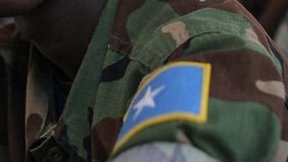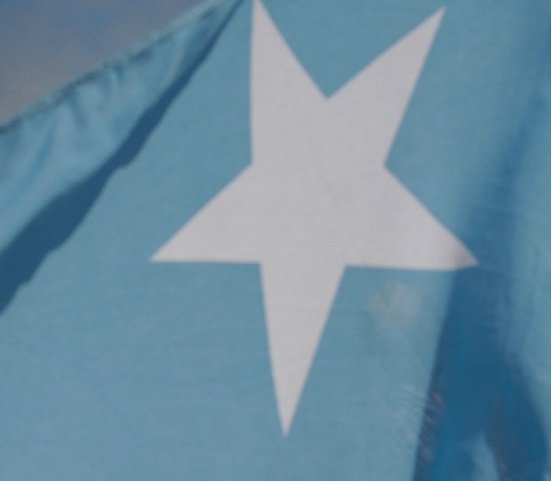By Abdirahman Abdishakur Warsame, Member of Federal Parliament and the Leader of Wadajir Party
Somalia stands at a critical juncture in its battle against Al-Shabaab as the militant group escalates its offensive against the Somali National Army (SNA) and local community forces. Despite earlier successes in pushing back the insurgents, recent months have witnessed a troubling decline in the national army’s capabilities, resulting in significant setbacks on the frontlines. This deterioration in military effectiveness is not solely due to battlefield challenges but is deeply rooted in the political divisions and governance failures that have plagued the nation.
Unilateral changes to the constitution, controversial electoral laws, and the politicization of the electoral commission have exacerbated internal divisions, undermining the government’s ability to unite the country. To address these challenges, President Hassan Sheikh Mohamud must implement urgent political reforms, restore national unity, and establish an inclusive government capable of steering the nation toward stability.
The Military Setbacks
Al-Shabaab, the Islamist militant group that has waged a brutal insurgency for over a decade, has recently intensified its attacks on Somali government forces and African Union Transition Mission in Somalia (ATMIS) troops. The group has capitalized on the weakening of the Somali National Army, which has suffered from poor morale, inadequate resources, and a lack of cohesive leadership. In regions such as Hirshabelle and Galmudug, Al-Shabaab has recaptured territories previously liberated by government forces, dealing a significant blow to the counterinsurgency campaign.

These frontline setbacks reflect the broader dysfunction within Somalia’s political and security institutions. The national army, which should serve as the backbone of the country’s defense, has been undermined by ineffective civilian leadership, corruption, and the absence of a clear strategy. The government’s failure to provide adequate support to its troops—ranging from command and control to morale, intelligence, equipment, and leadership—has left them vulnerable to Al-Shabaab’s well-coordinated attacks. This deteriorating situation has not only emboldened the militants but has also eroded public confidence in the government’s ability to protect its citizens.
Political Divisions and Governance Failures
The root causes of Somalia’s current military and security challenges lie in the political divisions that have deepened in recent years. Unilateral changes to the constitution, the enactment of controversial electoral laws, and the establishment of a partisan electoral commission have all contributed to a climate of mistrust and fragmentation. These actions, taken without broad consensus, have alienated key stakeholders, including federal member states like Puntland and Jubbaland, as well as opposition leaders.
The constitutional changes, pushed through without inclusive dialogue, have been perceived as an attempt by the federal government to consolidate power at the expense of regional autonomy and democratization. Similarly, the electoral laws and the composition of the electoral commission have been designed to favor the ambitions of the president, undermining the credibility of the electoral process. These actions have not only widened the rift between the federal government and regional administrations but have also fueled political instability, diverting attention and resources from the fight against Al-Shabaab.
Somalia’s fight against Al-Shabaab and its journey toward stability have reached a pivotal moment. The recent setbacks on the frontlines and the deepening political divisions highlight the urgent need for comprehensive reforms. By restoring the constitution, dissolving the partisan electoral commission, reconciling with regional administrations, and establishing an inclusive government, Somalia can begin to address the root causes of its current challenges.
Only through unity, effective governance, and a shared commitment to peace can the country overcome the threat posed by Al-Shabaab and build a brighter future for its people.
Recommendations for Restoring Stability
To address the deteriorating security situation and political divisions, President Hassan Sheikh Mohamud must take urgent steps to restore national unity and strengthen governance. The following recommendations provide a roadmap for achieving these objectives:
1. Restore the Constitution to Its Original Form: The unilateral changes to the constitution have undermined its legitimacy and fueled political divisions. Restoring the constitution to its original form, as agreed upon by all stakeholders, would help rebuild trust and create a foundation for inclusive governance.
2. Dissolve the Current Electoral Commission: The current electoral commission is biased and lacking credibility. Dissolving the commission and establishing a new, independent body composed of representatives and inclusive would ensure a fair and transparent electoral process.
3. Reach Out to Puntland and Jubbaland Administrations: The federal government must prioritize reconciliation with Puntland and Jubbaland. By addressing their grievances and involving them in decision-making processes, the government can foster a sense of national unity and cooperation.
4. Convene a National Dialogue: A National Dialogue involving federal and regional leaders, opposition figures, and civil society representatives should be convened to address the country’s pressing challenges. This platform would facilitate dialogue and consensus-building, enabling the development of a shared vision for Somalia’s future.
5. Establish an Inclusive and Effective Government: The current government’s incompetence and lack of inclusivity have hindered its ability to address Somalia’s security, electoral, and humanitarian crises. A new, inclusive government must be formed, with a focus on national unity and effective governance. This government should prioritize the development of a comprehensive national defense strategy, an agreed-upon electoral model, and measures to support communities affected by drought and conflict.
6. Address Humanitarian Crises and Stabilize War-Affected Areas: The ongoing conflict and drought have left millions of Somalis in desperate need of assistance. The government, with support from international partners, must prioritize the delivery of stabilization and humanitarian aid to war-affected areas, ensuring that vulnerable populations receive the support they need to survive and rebuild their lives.
Abdirahman Abdishakur Warsame
———-
Abdirahman is a member of Federal Parliament of Somalia and the Leader of Wadajir Party.


Leave a Reply